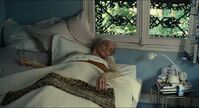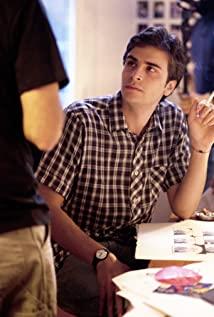Along with this funeral narration, Natalie couldn't help crying on the bus. The death of her mother and her husband moved out with a new girlfriend. She seemed to have lost a large area of her life when she was over forty. However, in the face of changes in her life, she did not panic or protest hysterically. On the contrary, she faced every "accident" in life with an exceptional calmness. When her husband, who had lived with her for twenty-five years, confessed that he was going to start a new life with a new girlfriend, she just responded with "I thought you would love me forever, I was so stupid" Do anything to redeem. Perhaps she knew that instead of struggling in vain, it was better to face the established facts as soon as possible, so when her husband tried to buy a bouquet of flowers to apologize, she decisively threw the flowers into the trash can, and she could not tolerate this hypocritical sympathy. She confessed to her student Fabien that her life wasn't going to be as bad as a divorce, that she expected it to be, and that she was happy to have a fulfilling spiritual world. Perhaps in Natalie's heart, she had fantasized about the death of love, the death of her relatives, or even her own death, so when everything came true, she was not afraid, at least not panicked. It's not that she is too indifferent or untouched by her broken life, she will also miss the small house by the sea in Brittany, which is full of memories of the past, with the garden she designed and planted by herself, and she will also hold the dark night in the dark. The cat cried, but she knew she was powerless to change, and she had foreseen that life didn't always go the way people expected it to be. When she packed up her luggage and left Brittany in a determined attitude, she heard the familiar Auf den Wasser zu singen, and the sea gradually receded from her eyes. At that moment, she stopped the tears from her eyes. Subsequent life did not give her any compensation. On the contrary, the textbook she wrote failed to be published because it did not meet the planning requirements of the best-selling book. Fabian, a young student who favored her, questioned her reluctance to join a radical political movement. Difficulties and incomprehension made her feel lonely, but they failed to embarrass her. She left Fabian under the pretext of a leak in the house, she no longer wanted to rely on anyone else, and even sent away the black cat Pandora.
The title of the film is "L'avenir", which translates as "things to come" in Chinese, and Derrida specifically explained the word in a documentary:
"In general, I try and distinguish between what one calls the Future and 'l'avenir' (the 'to come'). The future is that which—tomorrow,later,next century—will be. There is a future which is predictable, programmed,scheduled,foreseeable. But there is a future, 'l'avenir' which refers to someone who comes whose arrival is totally unexpected. For me, that is the real future. That which is totally unpredictable. The other who comes without my being able to anticipate their arrival. So if there is a real future, beyond the other known future, it is l'avenir in that it is the coming of the other when I am completely unable to foresee their arrival.
" In other words, l'avenir means an unpredictable future, or even an elusive destiny. Nalita's forbearance is probably based on her countless pessimistic rehearsals of 'l'avenir' in her mind. Of course, 'l'avenir'
On the way Fabien drove her to the lodge, she once said, "Think of where I am now, the kids have grown up and gone, my husband has left me, my mother has passed away, and I'm free, completely free. ". This freedom of Natalie is not unfettered freedom, but she has already realized that life is lonely and has witnessed the realization of this true meaning. The reason why she still feels free is that she has the ability to live with loneliness. Perhaps family life once gave her hope, but the truth after the cruel reality pierced the false hope made her more at ease. She has always only owned herself, with a shriveled and pale body wrapped in a round and solid seed, a thinking reed, and a self-consistent and full hard core. Pascal said that "nature offers me themes of hopelessness instead of doubt and unease," and Natalie uses these themes to divert the nothingness, to realize her own condition, responsibility and beauty.
The film begins with Natalie's family standing by the tomb of Chateaubriand on Grande Ile. This is a tomb facing the sea, and the dead proudly face the open sea, listening to the sound of the wind and the sea. Perhaps at that time, Natalie also built a sea grave in her heart, indifferently guarding all possibilities of the unknown fate.
View more about Things to Come reviews











